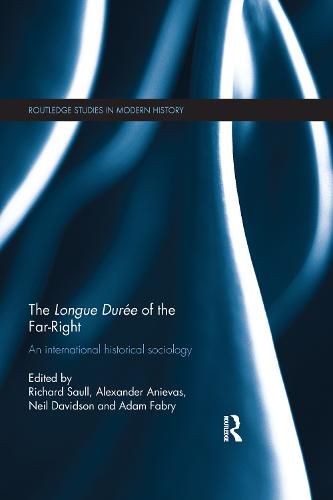Readings Newsletter
Become a Readings Member to make your shopping experience even easier.
Sign in or sign up for free!
You’re not far away from qualifying for FREE standard shipping within Australia
You’ve qualified for FREE standard shipping within Australia
The cart is loading…






This volume brings together a number of international scholars to offer an original analysis of far-right movements and politics, challenging the existing literature through a very different methodological and theoretical perspective. The approach offered here is that of ‘longue duree’ analysis, whereby the far-right is understood as an evolving subject of capitalist modernity. The authors argue that an assessment of the contemporary characteristics of the far-right needs to consider the ways in which it is a product of deeper and longer-term structures of socio-economic and political development, than, for example, the inter-war crises of capitalism. The book aims to provide a critical and theoretically-informed assessment of the history of the far-right that centres on the international as key to any understanding its evolution, and which distinguishes between the fascist and non-fascist variants as an essential precondition for comprehending the far-right presence in contemporary politics
$9.00 standard shipping within Australia
FREE standard shipping within Australia for orders over $100.00
Express & International shipping calculated at checkout
This volume brings together a number of international scholars to offer an original analysis of far-right movements and politics, challenging the existing literature through a very different methodological and theoretical perspective. The approach offered here is that of ‘longue duree’ analysis, whereby the far-right is understood as an evolving subject of capitalist modernity. The authors argue that an assessment of the contemporary characteristics of the far-right needs to consider the ways in which it is a product of deeper and longer-term structures of socio-economic and political development, than, for example, the inter-war crises of capitalism. The book aims to provide a critical and theoretically-informed assessment of the history of the far-right that centres on the international as key to any understanding its evolution, and which distinguishes between the fascist and non-fascist variants as an essential precondition for comprehending the far-right presence in contemporary politics